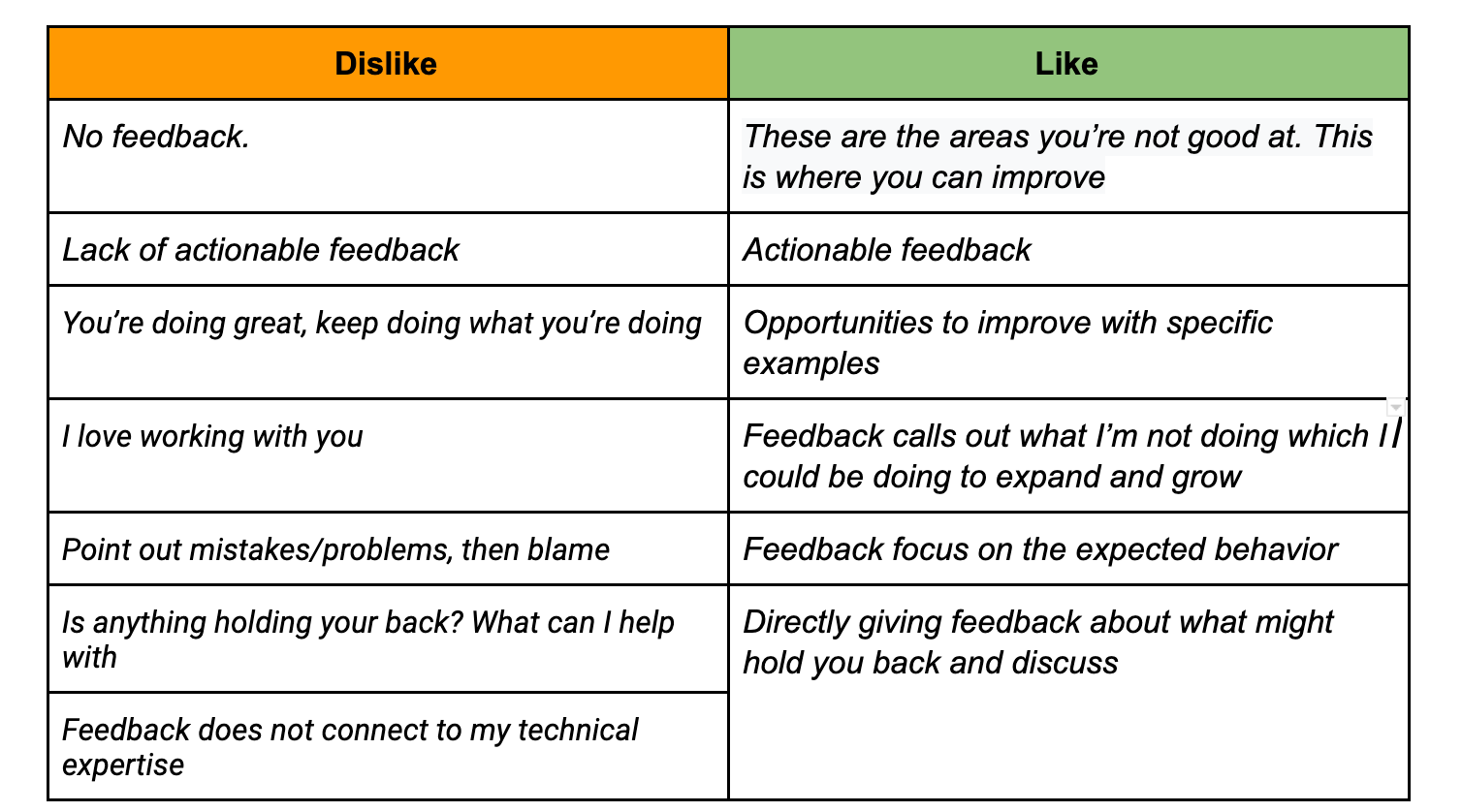
Equal For Feedback
Equal For Feedback
Each for Equal
The IWD 2020 campaign theme is drawn from a notion of ‘Collective Individualism’. We are all parts of a whole. Our individual actions, conversations, behaviors and mindsets can have an impact on our larger society.
Collectively, we made changes happen at ThoughtWorks Australia with a diverse and inclusive community:
- We achieved an equal number of male and female / under-represented gender minority consultants in Professional Service for the first time last year.
- We are the FIRST region within ThoughtWorks to get here.
- We were recently recognised by WGEA as an Employer of Choice for Gender Equality for the 8th time.
Yet we’re not done yet, we continue, collectively, to break down the barriers, to create a gender equal world.
Feedback and Career Development
Without feedback, it can be difficult to improve.
Feedback culture is part of our DNA, it’s embedded in our day to day life. It happens within teams, between peers, basically it could come from everyone that you directly or indirectly interact with, despite of the seniority and role.
This does not mean we’re perfect at giving/receiving feedback, we’re always looking for ways to improve. Most recently, we’ve asked our female/UGM(under-represented gender minority) technologists a question: “What kind of feedback do you like/dislike?”
Here is a summary of the response:

This is not unique to ThoughtWorks, this is a system problem that we need to work collectively to solve. In 2016, there is a research showing that women are systematically less likely to receive specific feedback tied to outcomes, both when they receive praise and when the feedback is developmental. In other words, men are offered a clearer picture of what they are doing well and more-specific guidance of what is needed to get to the next level.
In the meantime, “protective hesitation”–the failure to give feedback due to worry that the recipient might be upset - is a critical barrier to advance women’s career. The Women in the Workplace 2016 report indicates women are more than 20% less likely than men to receive difficult feedback that helps improve their performance.
Without specific actionable feedback, this can put female/UGM under disadvantage during promotion time.
Feedback Ties To Business Outcomes
As we often say, start small with a clear purpose.
As female/UGM, have an open conversation with your manager/peers about your expectation and style for feedback as well as your career goal, to minimize the impact of “protective hesitation”.
If you’re expected to provide feedback to a female/UGM members of your team, please consider following while building your feedback:
-
Use the consistent feedback criteria for the same role same level, rather than individual based;
- Systematically tie feedback — either positive or developmental — to business and organization outcomes. If you find yourself giving feedback without tying it to outcomes (e.g., “People like working with you”), ask yourself whether you can further tie the feedback to specific results (e.g., “You are effective at building team outcomes. You successfully resolved the divide between the engineering team and the product team on which features to prioritize in our last sprint, leading us to ship the product on time.”).
- Equalize references to technical accomplishments and capability, consistently to similar roles. Provide examples.
Please don’t let “protective hesitation” stop you from helping others to grow, especially women. Let’s take one small step to change this, provide equal feedback to everyone!
Reference:
- https://hbr.org/2016/04/research-vague-feedback-is-holding-women-back
- https://www.weforum.org/agenda/2016/10/managers-give-women-less-feedback/